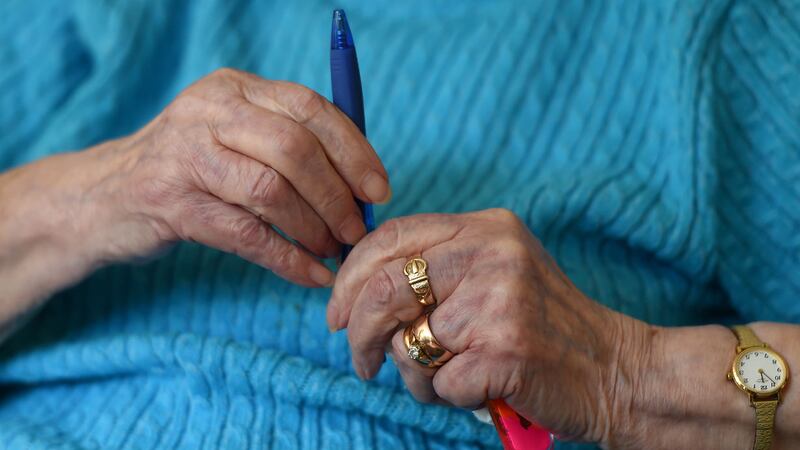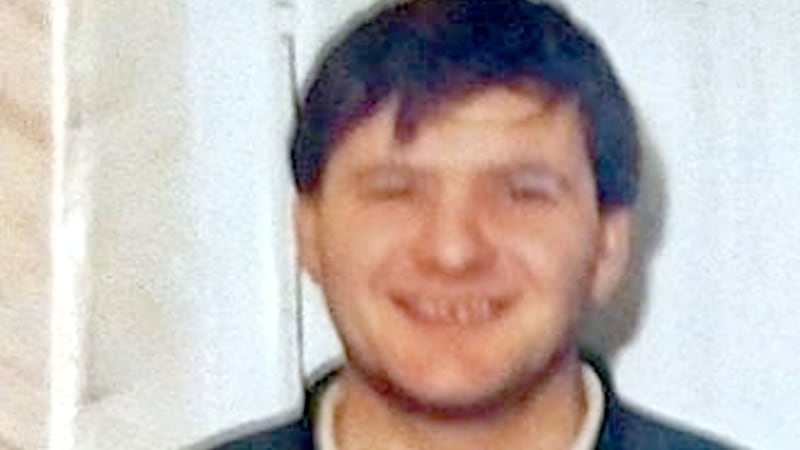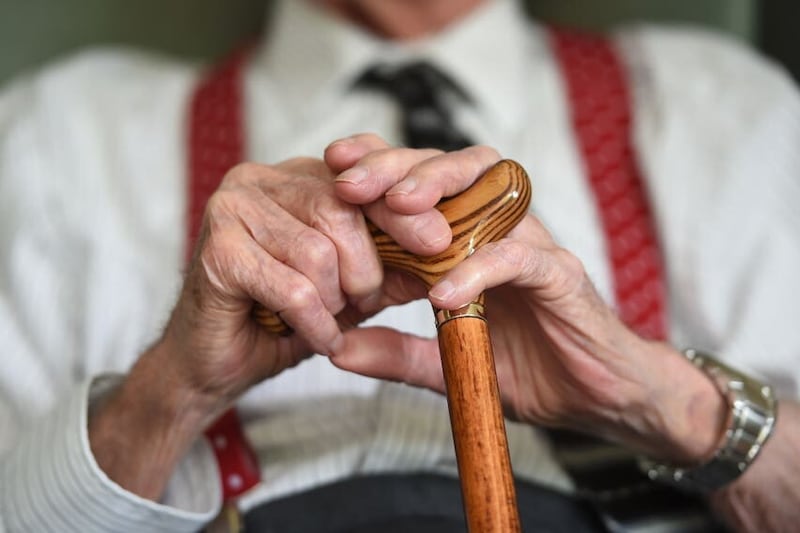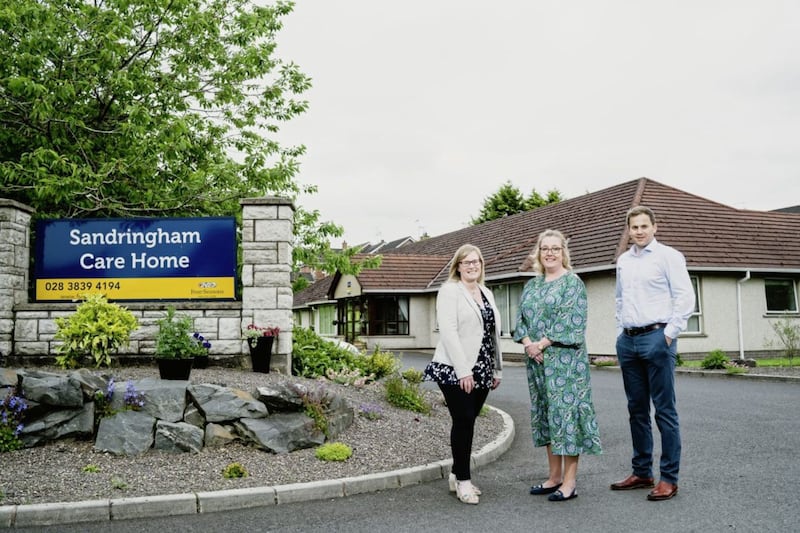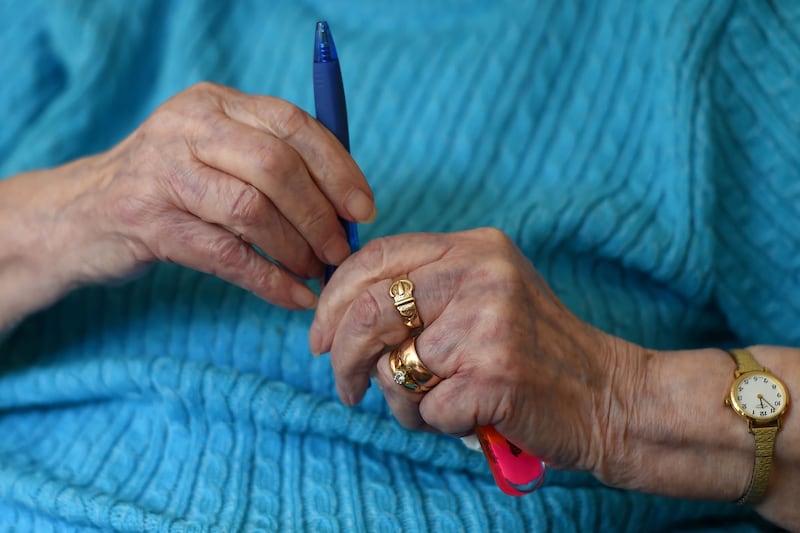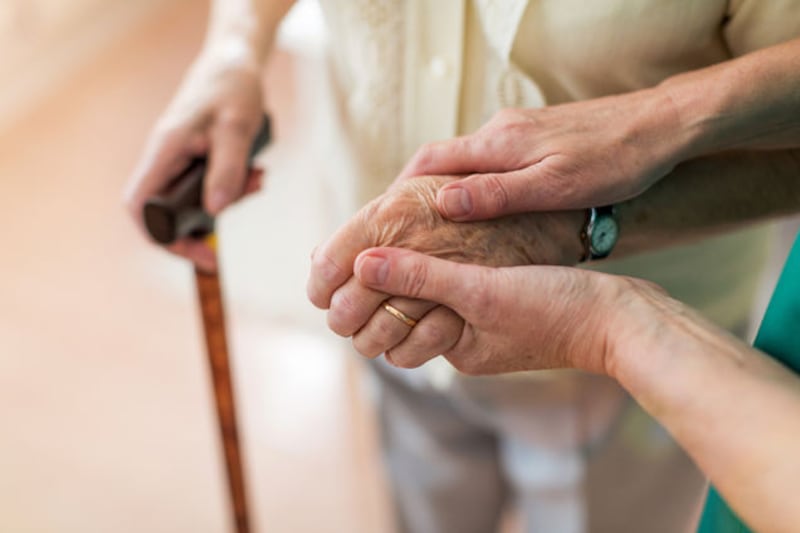More than 1,500 people have died with Covid-19 in nursing homes in the Republic of Ireland, the Oireachtas Health Committee has heard.
A total of 1,543 staff and residents in care homes have lost their lives during the pandemic - 369 in the last month alone.
During the third wave of the pandemic, the number of Covid-19 outbreaks in nursing homes has increased fivefold, from 34 in mid-December to 193 by the end of January.
Some 81% of all coronavirus-linked deaths in healthcare settings in the Republic of Ireland have been in nursing homes.
A total of 4,300 positive cases were recorded in nursing homes during January, 37% of them healthcare workers.
Questions were raised about the rollout of vaccines in nursing homes by the chief executive of Nursing Homes Ireland, Tadhg Daly.
He asked if a "critical window of opportunity" had been missed by not initiating a widespread rollout of vaccines in nursing homes as soon as the first doses arrived in the country.
He said: "With nursing home residents the most susceptible to the virus, just 10% of the initial 77,000 vaccinations administered by mid-January were within nursing homes.
"It is appropriate to remind that the National Immunisation Advisory Committee agreed nursing home residents and staff would be priority.
"The first vaccines arrived in Ireland on 26th December, yet the first was only administered in a private or voluntary nursing home on 7th January 2021.
"Every day is vital for our nursing home residents and staff."
Mr Daly said the entire health service is under "immense strain", with staffing levels the "predominant emergency".
Some 1,800 nursing home staff are unable to work due to the virus, he added.
"Within homes with outbreaks, available staff are going to extraordinary lengths at huge personal sacrifice to ensure continuity of care."
Yvonne O'Neill, national director of community operations at the HSE, said the high level of infections over the Christmas period had created immense challenges in the safe, effective delivery of services in the nursing home sector.
Dr Siobhan Kennelly, of the HSE's National Clinical Advisory Group, said significant support will be needed for staff, residents and families affected by the outbreaks.
She said: "There's a very severe impact across the board. We know that a number of bereavement supports have been put in place to help with some of the trauma related directly to the deaths and outbreaks as they've been happening.
"I think there will be a significant need for bereavement supports for many of the staff, and residents and their families who have been impacted directly by outbreaks."
She said many residents who have had to self-isolate have struggled with their mental health afterwards.
She said: "If you have residents who are isolated for a two-week period during an outbreak, they can become quite deconditioned.
"A lot of them lose weight. We've actually quantified that in terms of the impact that it has on mood, on appetites, and on a significant number of what we would call physical health parameters as well as mental health parameters.
"So we do recognise that residents' basic facilities are going to need a significant level of rehabilitation and support.
"Their families are going to need support, and clearly staff are going to need a lot of support."
